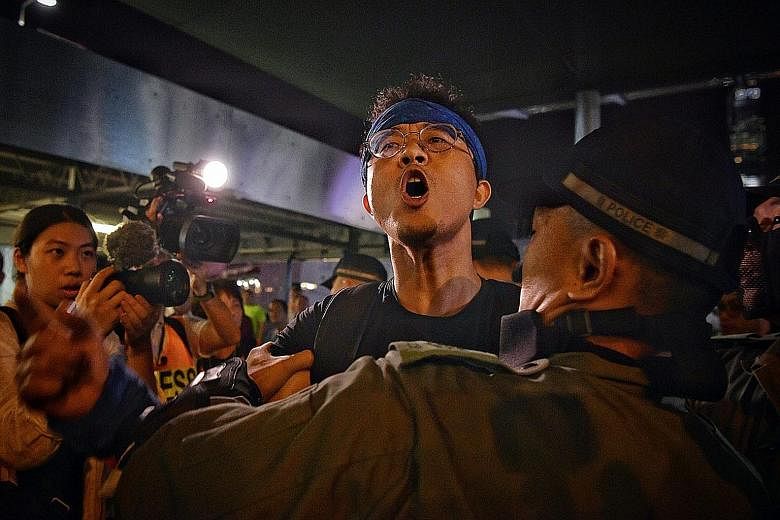HONG KONG • Hong Kong shopping malls closed early yesterday to avoid becoming targets of planned protests and the city's metro, which has borne the brunt of violent unrest in recent weeks, closed three hours early.
Hong Kong is one of the world's top shopping cities but four months of often violent protests have severely dented that reputation, with more than 100 shops closed, scores vandalised and malls now becoming sites for sit-ins by protesters.
Mass transit system operator MTR said the Airport Express would not stop at stations between Hong Kong and the airport last night, and check-in services in Kowloon would be suspended.
Protesters are playing a cat-and-mouse game with police, organising demonstrations at different locations via social media and stretching security resources.
Opposition to a now-withdrawn extradition Bill that would have allowed suspects to be sent to China sparked the unrest. However, it has widened into a pro-democracy movement driven by fears that Beijing is eroding Hong Kong's freedoms and anger at the city's government for failing to solve social issues such as unaffordable housing and poor job prospects.
Under a "one country, two systems" formula adopted when Britain returned its former colony to China in 1997, Hong Kong has a high degree of autonomy and its residents enjoy freedoms that do not exist on the mainland.
The unrest is the city's worst political crisis since 1997, and poses the biggest popular challenge to Chinese President Xi Jinping since he came to power in 2013.
Hong Kong's embattled Chief Executive Carrie Lam introduced emergency laws last Friday banning face masks that protesters use to shield their identities, sparking some of the worst violence since the unrest started.
Protests planned for last night included some in support of Taiwan on its National Day and rallies against perceived police brutality, with protesters wearing eye patches to show solidarity with a young protester hurt in clashes.
"The violence has been accelerating a lot. I think they (police) are really damaging the law and the legal system," said David, a 27-year-old accountant who was wearing a black mask covering the lower half of his face and clutching a sign saying "Free Hong Kong".
Police have fired live rounds and used tear gas, baton charges and water cannon to quell the unrest. Two teenagers have also been shot.
President Tsai Ing-wen, in a National Day speech in Taipei, said Taiwan had rejected the "one country, two systems" formula Beijing suggested could unify it with the mainland, saying it had set Hong Kong "on the edge of disorder".
Beijing regards Taiwan as a wayward province and has not renounced the use of force to bring it into the fold.










